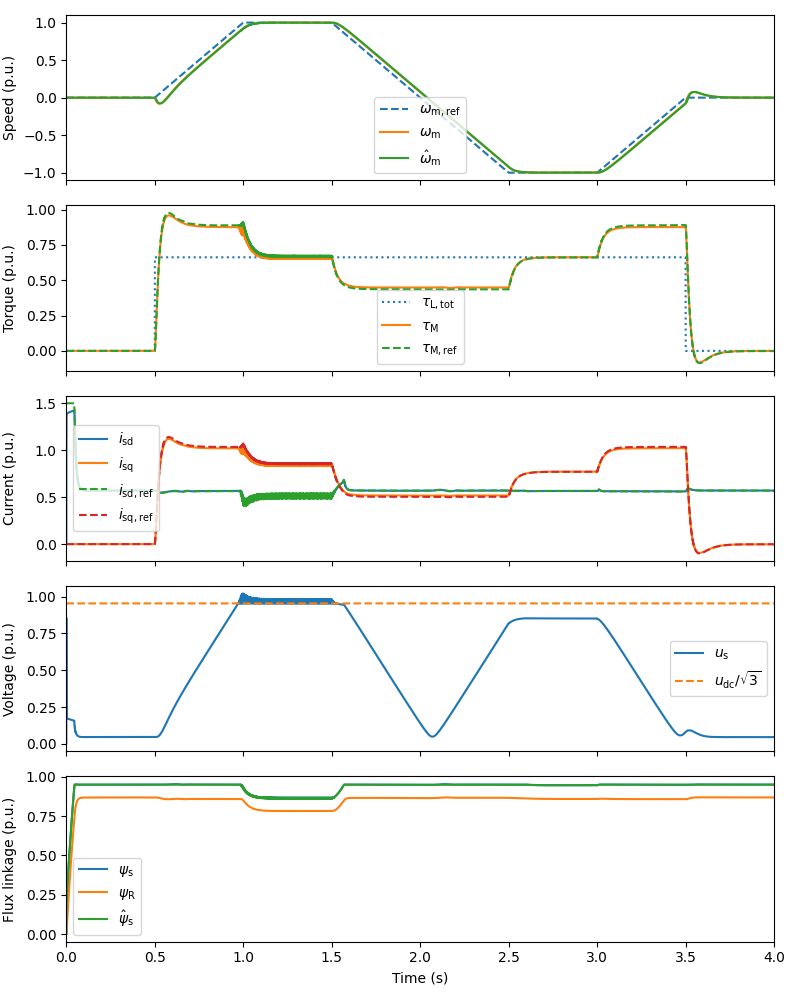Note
Go to the end to download the full example code.
2.2-kW induction motor#
This example simulates sensorless flux-vector control of a 2.2-kW induction machine.
from math import pi
import motulator.drive.control.im as control
from motulator.drive import model, utils
Compute base values based on the nominal values (just for figures).
nom = utils.NominalValues(U=400, I=5, f=50, P=2.2e3, tau=14.6)
base = utils.BaseValues.from_nominal(nom, n_p=2)
Configure the system model.
# Unsaturated machine model, using its inverse-Γ parameters
par = model.InductionMachineInvGammaPars(
n_p=2, R_s=3.7, R_R=2.1, L_sgm=0.021, L_M=0.224
)
machine = model.InductionMachine(par)
mechanics = model.MechanicalSystem(J=0.015)
converter = model.VoltageSourceConverter(u_dc=540)
mdl = model.Drive(machine, mechanics, converter)
Configure the control system.
est_par = par # Assume the machine model is perfectly known
cfg = control.FluxVectorControllerCfg(
psi_s_nom=0.95 * base.psi, i_s_max=1.5 * base.i, tau_M_max=1.5 * nom.tau
)
vector_ctrl = control.FluxVectorController(est_par, cfg, sensorless=True)
speed_ctrl = control.SpeedController(J=0.015, alpha_s=2 * pi * 4)
ctrl = control.VectorControlSystem(vector_ctrl, speed_ctrl)
Set the speed reference and the external load torque.
Create the simulation object, simulate, and plot the results in per-unit values.
sim = model.Simulation(mdl, ctrl)
res = sim.simulate(t_stop=1.5)
utils.plot(res, base)

Total running time of the script: (0 minutes 5.298 seconds)